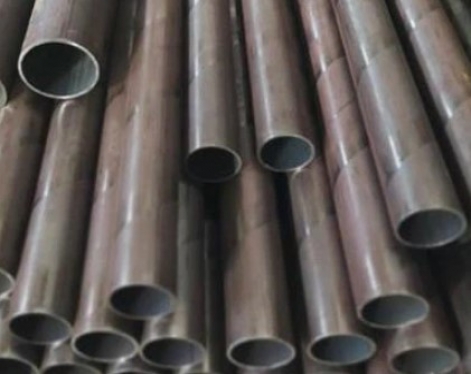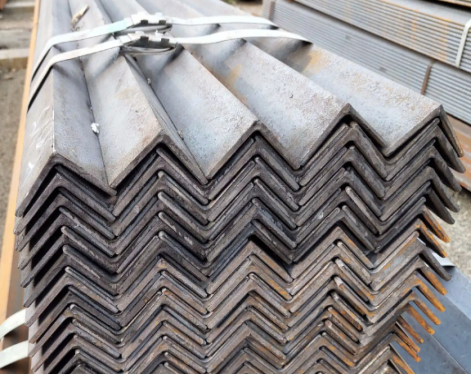As key components in industries such as thermal power generation, petrochemicals, and shipbuilding, market demand for boiler tubes—as well as related products like seamless pipe and ERW pipe—is closely tied to the development of these industries. In recent years, with the adjustment of global energy structures, stricter environmental protection policies, and the rise of emerging markets, the boiler tube market has shown new development trends.
Global market demand is steadily increasing
1. Traditional markets remain stable: Although the global energy structure is transitioning towards renewable energy, thermal power generation will still occupy an important position in the short term, especially in developing countries. Countries such as China and India are highly dependent on coal resources, and their installed capacity of thermal power generation continues to grow, providing stable demand for the boiler tube market.
2. Rapid rise of emerging markets: Southeast Asia, South Asia, Africa and other regions are experiencing rapid economic development, infrastructure construction is in full swing, and the demand for electricity is growing. Increasing investment in thermal power projects in these regions has brought new growth points to the boiler tube market.
3. Strong demand in the petrochemical industry: The global petrochemical industry continues to develop, and investment in the construction of refining, ethylene and other facilities has increased, resulting in a growing demand for products such as high-pressure boiler tubes and alloy boiler tubes.

Product structure develops towards high-end
1. Increasing demand for high-efficiency and energy-saving boiler tubes: With increasingly stringent environmental protection policies, the thermal power generation industry has put forward higher requirements on the efficiency and emissions of boilers. Supercritical and other high-parameter and large-capacity units have become a development trend, and the demand for high-efficiency and energy-saving boiler tubes that are resistant to high temperature, high pressure and corrosion is increasing.
2. The application of special material boiler tubes is expanding: The petrochemical, nuclear power and other fields have higher performance requirements for boiler tubes, and the application scope of special material boiler tubes such as stainless steel and nickel-based alloys is constantly expanding.
3. The process of domestic substitution is accelerating: With the continuous advancement of my country's boiler tube manufacturing technology, domestic boiler tubes can already meet the needs of most application scenarios in terms of performance and quality. The process of domestic substitution is accelerating and dependence on imports is gradually decreasing.
Market competition is becoming increasingly fierce
1. International giants are accelerating their layout: The global boiler tube market is highly competitive. International giants such as Japan's Sumitomo Metal and Germany's Mannesmann have taken a leading position in the high-end market by virtue of their technological advantages and brand influence.
2. Intensified competition among domestic enterprises: Domestic boiler tube manufacturers are numerous, but their technical capabilities vary widely, leading to increasingly fierce market competition. Leading enterprises are continuously improving their competitiveness through technological research and development, brand building, and market expansion, while small and medium-sized enterprises face greater pressure to survive.
3. Increased price competition pressure: Affected by factors such as raw material price fluctuations and changes in market demand, price competition pressure in the boiler tube market has increased, and corporate profit margins have been squeezed.
Future development trends
1. Green and low-carbon development: With the advancement of the global carbon neutrality goal, the boiler tube industry will develop in a greener and more low-carbon direction, and high-efficiency, energy-saving and environmentally friendly boiler tubes will become the mainstream products in the future market.
2. Smart manufacturing upgrade: Digital and intelligent technologies will be accelerated in the production and manufacturing of boiler tubes, improving production efficiency, product quality and cost control capabilities.
3. Acceleration of globalization layout: Domestic boiler tube companies will accelerate the pace of "going global", actively explore overseas markets, participate in international competition, and increase global market share.
Read more: Storage Conditions of Boiler Tubes
Global market demand is steadily increasing
1. Traditional markets remain stable: Although the global energy structure is transitioning towards renewable energy, thermal power generation will still occupy an important position in the short term, especially in developing countries. Countries such as China and India are highly dependent on coal resources, and their installed capacity of thermal power generation continues to grow, providing stable demand for the boiler tube market.
2. Rapid rise of emerging markets: Southeast Asia, South Asia, Africa and other regions are experiencing rapid economic development, infrastructure construction is in full swing, and the demand for electricity is growing. Increasing investment in thermal power projects in these regions has brought new growth points to the boiler tube market.
3. Strong demand in the petrochemical industry: The global petrochemical industry continues to develop, and investment in the construction of refining, ethylene and other facilities has increased, resulting in a growing demand for products such as high-pressure boiler tubes and alloy boiler tubes.

Product structure develops towards high-end
1. Increasing demand for high-efficiency and energy-saving boiler tubes: With increasingly stringent environmental protection policies, the thermal power generation industry has put forward higher requirements on the efficiency and emissions of boilers. Supercritical and other high-parameter and large-capacity units have become a development trend, and the demand for high-efficiency and energy-saving boiler tubes that are resistant to high temperature, high pressure and corrosion is increasing.
2. The application of special material boiler tubes is expanding: The petrochemical, nuclear power and other fields have higher performance requirements for boiler tubes, and the application scope of special material boiler tubes such as stainless steel and nickel-based alloys is constantly expanding.
3. The process of domestic substitution is accelerating: With the continuous advancement of my country's boiler tube manufacturing technology, domestic boiler tubes can already meet the needs of most application scenarios in terms of performance and quality. The process of domestic substitution is accelerating and dependence on imports is gradually decreasing.
Market competition is becoming increasingly fierce
1. International giants are accelerating their layout: The global boiler tube market is highly competitive. International giants such as Japan's Sumitomo Metal and Germany's Mannesmann have taken a leading position in the high-end market by virtue of their technological advantages and brand influence.
2. Intensified competition among domestic enterprises: Domestic boiler tube manufacturers are numerous, but their technical capabilities vary widely, leading to increasingly fierce market competition. Leading enterprises are continuously improving their competitiveness through technological research and development, brand building, and market expansion, while small and medium-sized enterprises face greater pressure to survive.
3. Increased price competition pressure: Affected by factors such as raw material price fluctuations and changes in market demand, price competition pressure in the boiler tube market has increased, and corporate profit margins have been squeezed.
Future development trends
1. Green and low-carbon development: With the advancement of the global carbon neutrality goal, the boiler tube industry will develop in a greener and more low-carbon direction, and high-efficiency, energy-saving and environmentally friendly boiler tubes will become the mainstream products in the future market.
2. Smart manufacturing upgrade: Digital and intelligent technologies will be accelerated in the production and manufacturing of boiler tubes, improving production efficiency, product quality and cost control capabilities.
3. Acceleration of globalization layout: Domestic boiler tube companies will accelerate the pace of "going global", actively explore overseas markets, participate in international competition, and increase global market share.
Read more: Storage Conditions of Boiler Tubes









